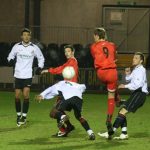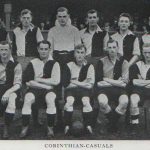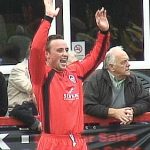*BS*ANDY HESSENTHALER has warned his Dover side not to take their foot off the gas – despite opening up a 10-point lead at the top of the league.
*BF*Second-place Tooting and Mitcham, now the only serious challengers to Dover’s position at the summit of Ryman One, slipped to a 1-0 defeat against Sittingbourne.
But the South London club do have a game in hand and are yet to face Whites at their Imperial Fields ground on March 1. Victory over Dover, along with another three points with their spare game, could see that lead cut to just four.
And boss Hess says nothing can be taken for granted until it is mathematically impossible for anyone to overhaul Dover’s position.
He told the Your Dover newspaper: “If we are not working at 100 per cent then we will not win the league.
“I do believe it is just down to a two-horse race between us and Tooting and the game against them will be crucial.”
Hess also praised striker Jimmy Dryden who scored a hat-trick in the 4-1 demolition of Molesey last week.
He said: “Jimmy has scored a lot of goals this season and has been a vital part of the squad this season.
“I’ve left him out of a few games recently as he was having a bad run but he started to find the net again.
“I brought him back because he gives us a different option up front as he can use his strength and he knows where the goal is.”
Hess also heaped praise on John Whitehouse. He said: “John has settled well in the team and has been brilliant in the few games he has played.
“He is a great shot stopper but probably his best part of his game is that he dominates his area.
“It is important to have a quality goalkeeper if you want to win things. He also brings a healthy competition into the side for our other goalkeeper Dean Ruddy.”






